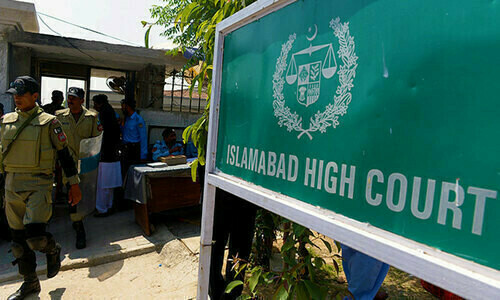
RIYADH: King Abdullah dismissed the head of Saudi Arabia's powerful religious police on Friday, replacing him with a more moderate cleric, state news agency SPA reported without giving reasons.
Sheikh Abdullatif Abdel Aziz al-Sheikh a member of the country's most powerful religious family, was named in place of Sheikh Abdulaziz al-Humain, to head the Commission for the Promotion of Virtue and Prevention of Vice.
SPA gave no reason for the change. King Abdullah, a cautious reformer, appointed Humain in 2009 to head the “mutaween” which ensures the strict application of the country's ultra-conservative version of Islam, as a step towards reforming it.
Humain hired consultants to restructure the organisation, met local human rights groups and consulted professional image-builders in a broad public relations campaign.
The commission also investigated and punished some out-of-control officers for misbehaviour.
It launched regular training sessions as well, including five-day courses on “skills to deal with witches and sorcerers” and the three-day “skills to deal with tourists.”This came after a number of cases in recent years outraged even Saudis and embarrassed the government.
In 2002, they reportedly prevented firemen from entering an all-girls school that was ablaze because of the segregation-of-sexes policy, and blocked the girls from escaping because they were not wearing the obligatory veil.
Fourteen girls were trampled to death and 50 hurt in a stampede after the fire broke out.
And the arrest a few years ago of an American businesswoman meeting a man in a Saudi Starbucks sparked a US complaint. The new chief is noted for his moderate views on segregation.
In 2010, he backed the head of the religious police in Mecca, Ahmed al-Ghamdi, who was briefly sacked and then rehabilitated after saying Islam does not categorically require segregation and that shops could remain open during prayer time.
The religious police prevent women from driving; require them to shroud their faces and bodies in all-black, shapeless abayas; block public entertainment and force all commerce, from supermarkets to petrol stations, to come to a halt at prayer times, five times a day.
They are the reason Saudis do not have cinemas, that unrelated men and women cannot work in the same office and that young men fear their cellphones will be searched for “illicit” photos and messages from unrelated girls.
Although they fall under the interior ministry, they operate with great autonomy.
They maintain a close alliance with both the courts, where all the judges are Islamic clerics, and the powerful Grand Ulema, the supreme council of religious scholars who define the Islamic rules governing life.











































Dear visitor, the comments section is undergoing an overhaul and will return soon.